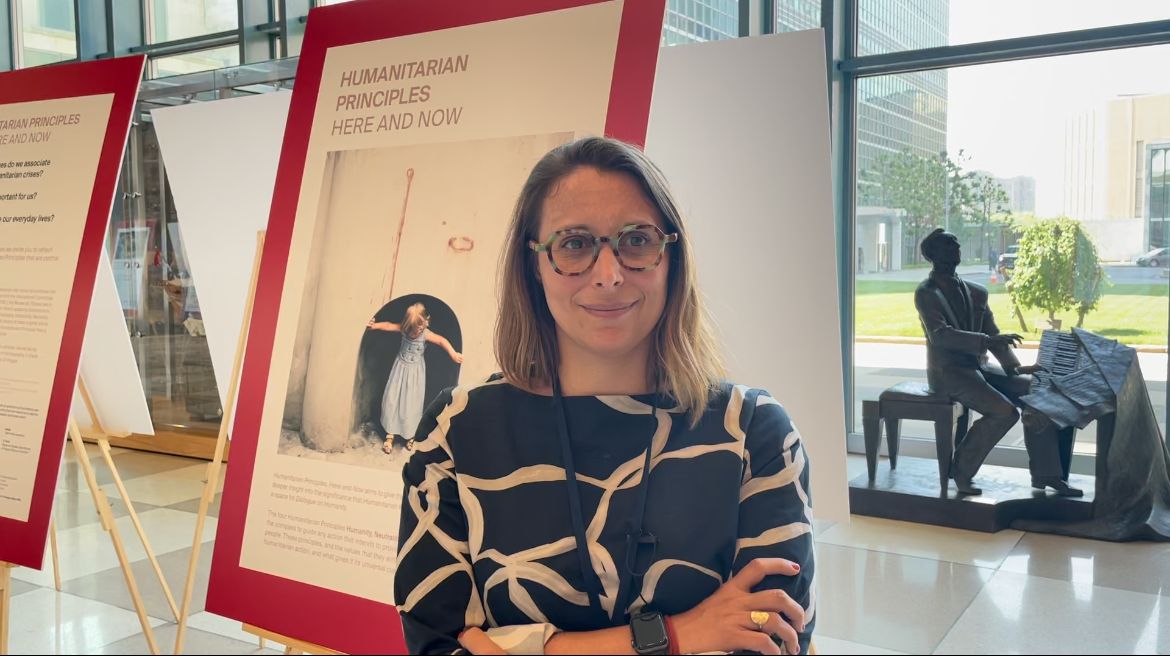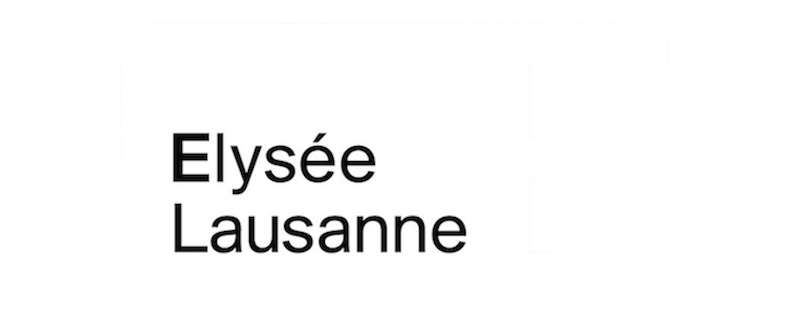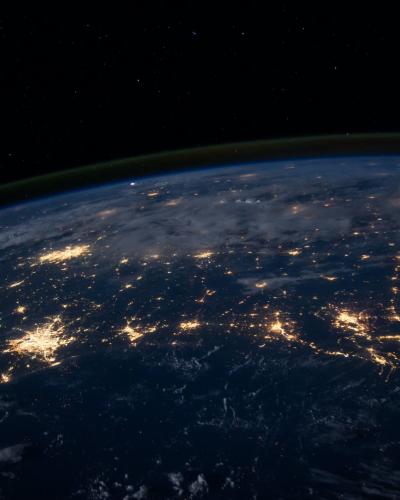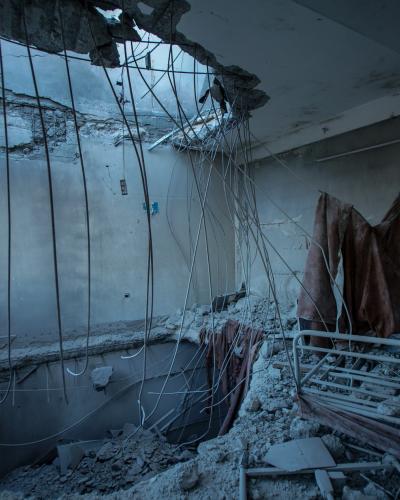The exhibition "Humanitarian Principles, Here and Now" was inaugurated on Monday, May 24, at the UN Headquarter in New York by Pascale Baeriswyl, Permanent Representative of Switzerland to the UN and Laetitia Courtois, Permanent Observer of the International Committee of the Red Cross (ICRC). A contemporary art installation in the delegates' entrance marks the gradual return to life in the UN premises as it is the first such event authorized by the UN health services since the outbreak of the pandemic a year ago.
Under the artistic direction of the Musée de l'Elysée in Lausanne, and in collaboration with the Federal Department of Foreign Affairs and the ICRC, ten Swiss artists were given free rein to create a film sharing their vision of the notions of humanity, impartiality, neutrality and independence (virtual tour of the installation).

On the sidelines of this event, Laetitia Courtois, the ICRC representative, talks about the situation of people receiving humanitarian aid and how the pandemic has made their lives even more difficult.
- In one sentence, tell us why each of these principles is essential to humanitarian action:
Humanity, because... as fellow human beings, we must work to protect life and ensure respect for all people, so that no one is made to suffer.
Impartiality, because... we are guided by the needs of those we need to help, no matter their nationality, race, religious belief or political opinions.
Neutrality, because... not taking side in hostilities or engaging in controversies of political religious or ideological nature allows us to carry out our work.
Independence, because... this allows us to remain autonomous and then we can act in accordance with our fundamental principles.
- The ICRC has been providing humanitarian aid for over 160 years. Where do we stand today? Is there a before and after COVID-19? Or is it a crisis like many others?
There's no doubt that the COVID-19 pandemic has created an unseen situation in our lifetime. It has definitely impacted the contexts that were already fragile because of the conflicts and their consequences, the climate emergencies, or the economic instabilities. In those contexts, we see that a layering of vulnerabilities has made the lives of people even more difficult and we can also see that conflicts have remained unabated, frozen crises or conflicts have resumed. Finally, the situation has also been deteriorating because of the intensity of some conflicts that have been seen recently.
- What are the concrete consequences of the COVID-19 pandemic for people in humanitarian crises?
The COVID-19 pandemic has underscored the importance of protecting healthcare and healthcare workers: they are crucial for our societies at all times and especially now, as we live through this unprecedented emergency. In 2016, the UN Security Council adopted its first resolution on the Protection of Health Care in Conflict, yet between 2016 and 2020 the ICRC counted 3780 attacks on healthcare workers, including a spike during the pandemic. Therefore, the protection of women and men working in the health sector and the infrastructure they need is a key concern for the ICRC.
- What lessons can we learn from this crisis in the medium and long term?
The COVID-19, pandemic has affected us all very hardly but definitely not equally. It has hit those living in conflict-affected areas particularly hard. I cannot imagine the situation in countries such as Nigeria, Colombia or Yemen, where people are already struggling with many other crises. We've seen that global pandemics need a multi-layered response at the community, national, and global level.
In ICRC's latest report "As if the war was not enough”, we examine the impact of the pandemic on real life experiences documented by our team and reflect on the lessons learned. We also highlight good practices, ideas and strategies that have helped limit the spread of the disease, care for the sick and mitigate the impact on vulnerable communities.
Relive the opening ceremony of the exhibiton here.
___
A contemporary art installation produced by the Musée de l’Elysée, Lausanne, and the Swiss Ministry of Foreign Affairs, in conversation with the International Committee of the Red Cross.




